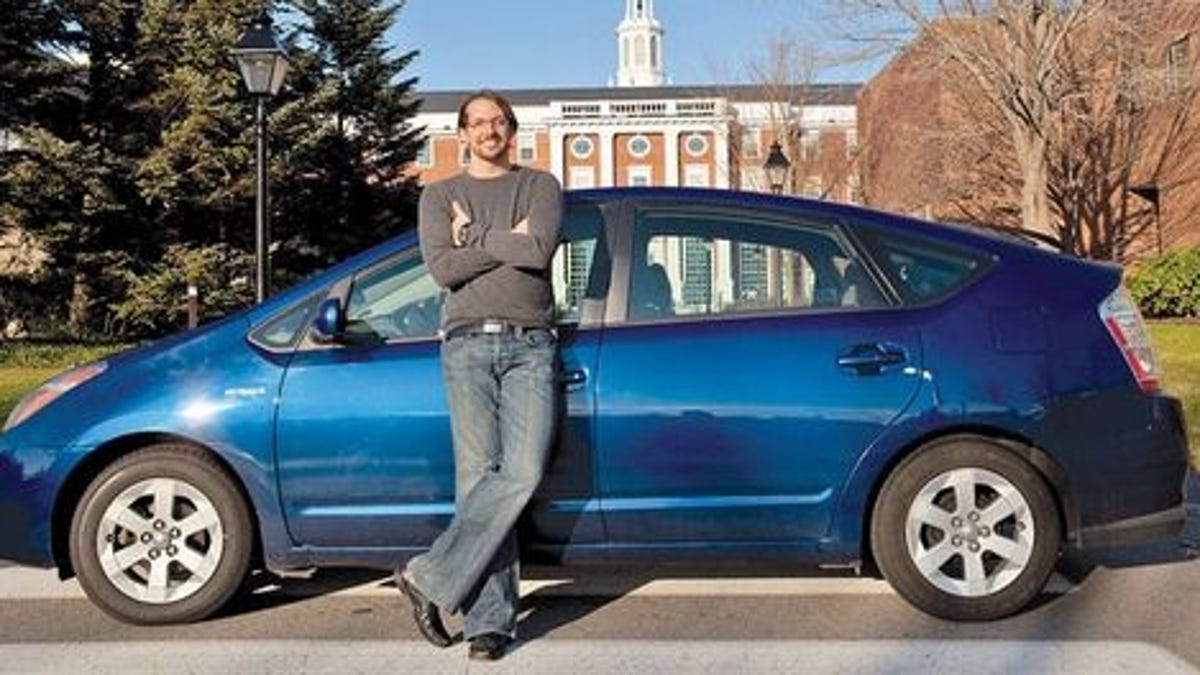RelayRides redesigns car sharing
Automotive News reports on a new car-sharing service.

Shelby Clark hasn't owned a car since he moved to San Francisco for a new job, relying instead on his bicycle, public transit and a Zipcar membership for access to a fleet of hourly rental cars.
When he was accepted to Harvard Business School, Clark decided to continue his car-free lifestyle in Cambridge, Mass. But he hadn't planned for the East Coast winter--and a 2 1/2-mile bike ride in the snow to reach the nearest available Zipcar.
While pedaling to a Zipcar one day in December 2008, he came to a realization.
"I was passing all these cars parked along the road, and I wanted to just get off my bike and get one. They looked like they hadn't been used in weeks," said Clark, now 28. "It was like, 'Why can't I?' That was sort of the light-bulb moment."
That moment inspired RelayRides, a peer-to-peer car sharing service. Through RelayRides, vehicle owners and borrowers are linked to each other over the Web, enabling neighbors to borrow cars from each other. Clark believes the arrangement could cause consumers to delay new-vehicle purchases and even limit the number of gas-guzzling SUVs and pickups on the road.
"A lot of families buy a giant SUV for the one time a month they need to carry around six kids and a dog, when 95 percent of the time they would be fine with a Prius," Clark said. "It makes sense economically, it makes sense environmentally and it makes sense for the family."
For the borrower, the rental process is similar to Zipcar's, the world's largest car-sharing service, which made $175 million in its initial public offering last month. But RelayRides doesn't own its fleet, enabling it to avoid some of the high operating costs that other car-sharing companies can experience.
RelayRides does oversee the fleet, though. While car owners are responsible for maintaining the vehicles they share, RelayRides inspects the cars and equips them with GPS/starter override devices. Borrowers hold a membership card up to a sensor on the device to open the door and unlock the ignition. The keys are in the glove box. Car owners also pay for all gasoline. Borrowers use a gas card stored inside the vehicle to fuel up when the tank falls below a quarter full. The cost of the gasoline is deducted from the money the owner makes.
Car borrowers must be at least 21 and have a clean driving record. Travel is generally limited to 20 miles per hourly rental or 160 miles per daily rental. RelayRides carries $1 million in insurance on each borrower.
"If you look at traditional car-sharing models where they own their own fleet, they have to have very high utilization to make the numbers work," said Howard Hartenbaum, an investor with venture capital firm August Capital in Menlo Park, Calif. "For RelayRides, you can have some cars at low utilization and some cars at high utilization, and providing you've got the right people in the right places, it can still work for everyone."
Clark launched the RelayRides pilot program in Boston in June 2010 and gained $5.1 million in investments from Google Ventures, August Capital and others by year end. In January, Clark added operations in San Francisco and moved the company's headquarters there.
RelayRides has 2,000 borrowers and 100 owners enrolled between the two cities. Available vehicles range from the Honda Accord and Toyota Prius to the Porsche Cayenne and Mini Cooper.
Clark hopes to cooperate with automakers and dealerships, which, he believes, could benefit by enabling consumers to sample their vehicles through car sharing.
Clark said: "The manufacturers that view car sharing as a threat will end up being left behind in the shifting landscape."
(Source: Automotive News)